Has the Benchmade 940 Osborne Finally Met Its Match?
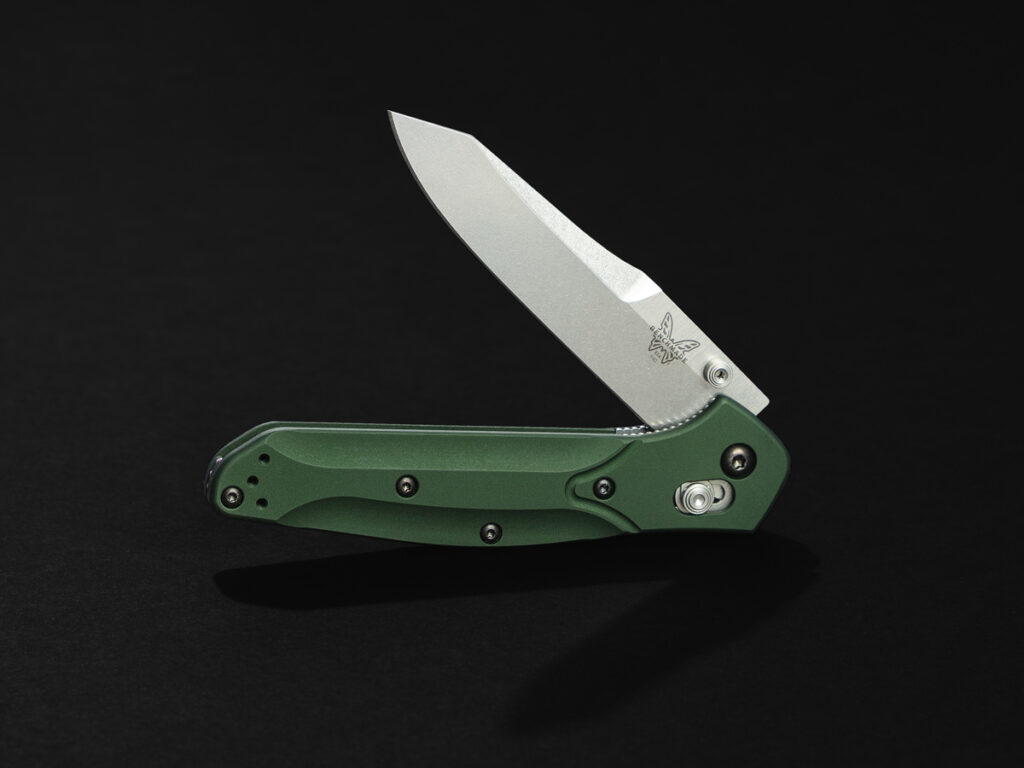
The Benchmade 940 Osborne. It’s a classic knife, an icon. Many consider it the flagship of Benchmade‘s lineup. But can anything top it? That’s the question we’re tackling today. We’re diving into the world of knives to see if any alternatives can measure up to this legend. The 940, designed by Warren Osborne, is known for its unique combination of formal style and hard-use capability. It was introduced in 2000, and its success has been impossible to replicate ever since.
The Benchmade 940 Osborne: A Closer Look
The best way to appreciate the Benchmade 940 is to understand the man behind it, Warren Osborne.
Warren Osborne’s Design Philosophy
Osborne was born in Australia and spent time working as a ranch hand and horse trainer. This practical experience shaped his design language. His knives are beautiful, but they’re also meant to be used. The fit and finish are exquisite, reflecting his attention to detail.
Blade Shape and Functionality
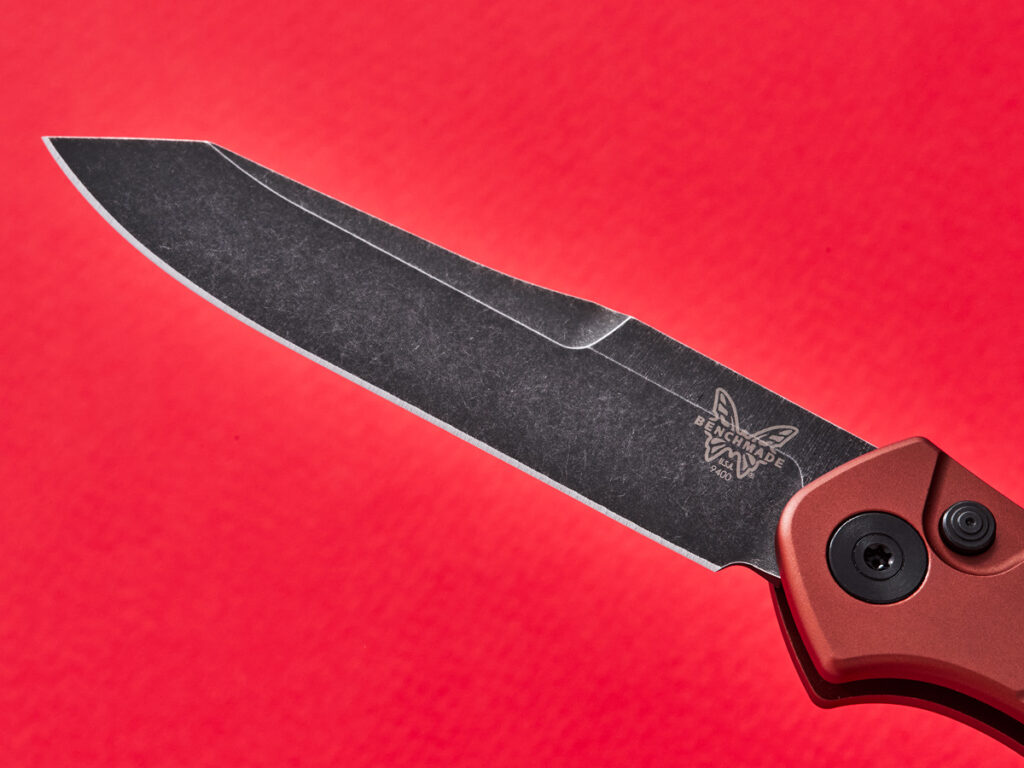
The most distinctive feature of the 940 is its blade shape, often called a reverse tanto. This design gives the blade a strong tip. It also maintains enough thickness for sturdiness. The blade isn’t a full flat grind, but the two-thirds height flat grind balances slicing ability and strength. The shape is similar to that of a Spey blade, often found on a classic Stockman pattern knife, a tool used by ranchers.
Key Features of the Standard 940
The standard version of the 940 has a 3.4-inch blade made of S30V steel with a stonewashed finish. The handles are made from aluminum with a vivid green anodized finish. The back of the knife features a ridged titanium backspacer, anodized purple. This combination of colors and materials creates a unique, instantly identifiable look that stands out just as much today as it did when it first hit the market.
Ergonomics and Carry
The handles are narrow, making the 940 easy to carry in a pocket. It doesn’t take up much space. The knife also features Benchmade’s AXIS Lock, a strong and ambidextrous mechanism. Dual thumb studs and a reversible pocket clip make it 100% lefty-friendly.
The AXIS Lock Mechanism
The AXIS Lock is a crossbar mechanism known for its strength. The closing action is also finger-safe. Your fingers never get in the path of the blade when using the knife. Plus, it’s ambidextrous, making it great for both right- and left-handed users.
Variations: Exploring the 940 Family
The 940 design has been expanded with several variations.
940-2
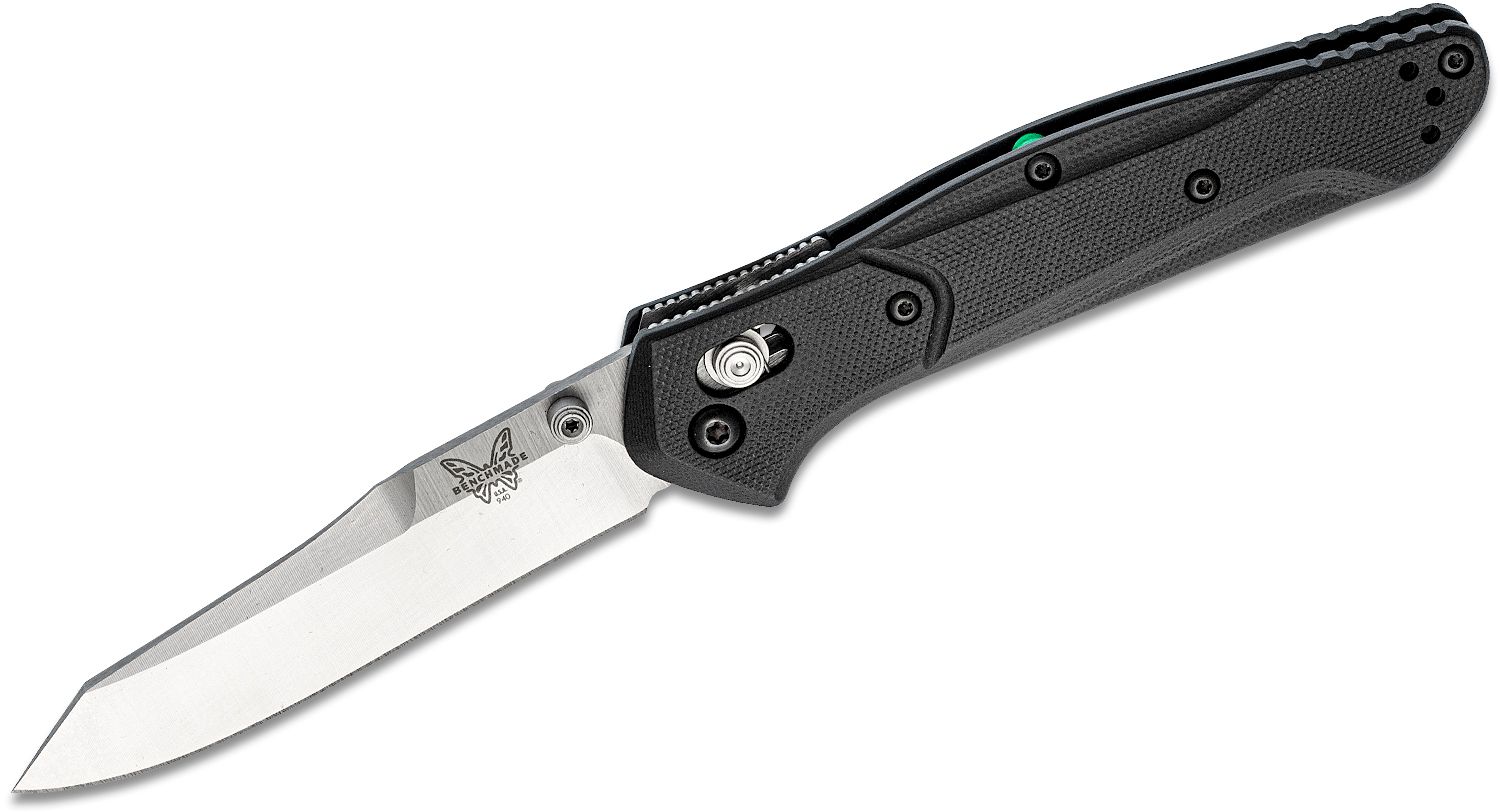
For a few dollars less, you can get the 940-2. This version features G10 handles and the same S30V blade. The cost savings is appreciated, but users will also appreciate the hard-wearing handle that won’t scratch or dent like the original aluminum. Plus, the use of standoffs also makes it easier to keep clean since there are fewer spaces for dirt or lint to get trapped in the handle.
940-1
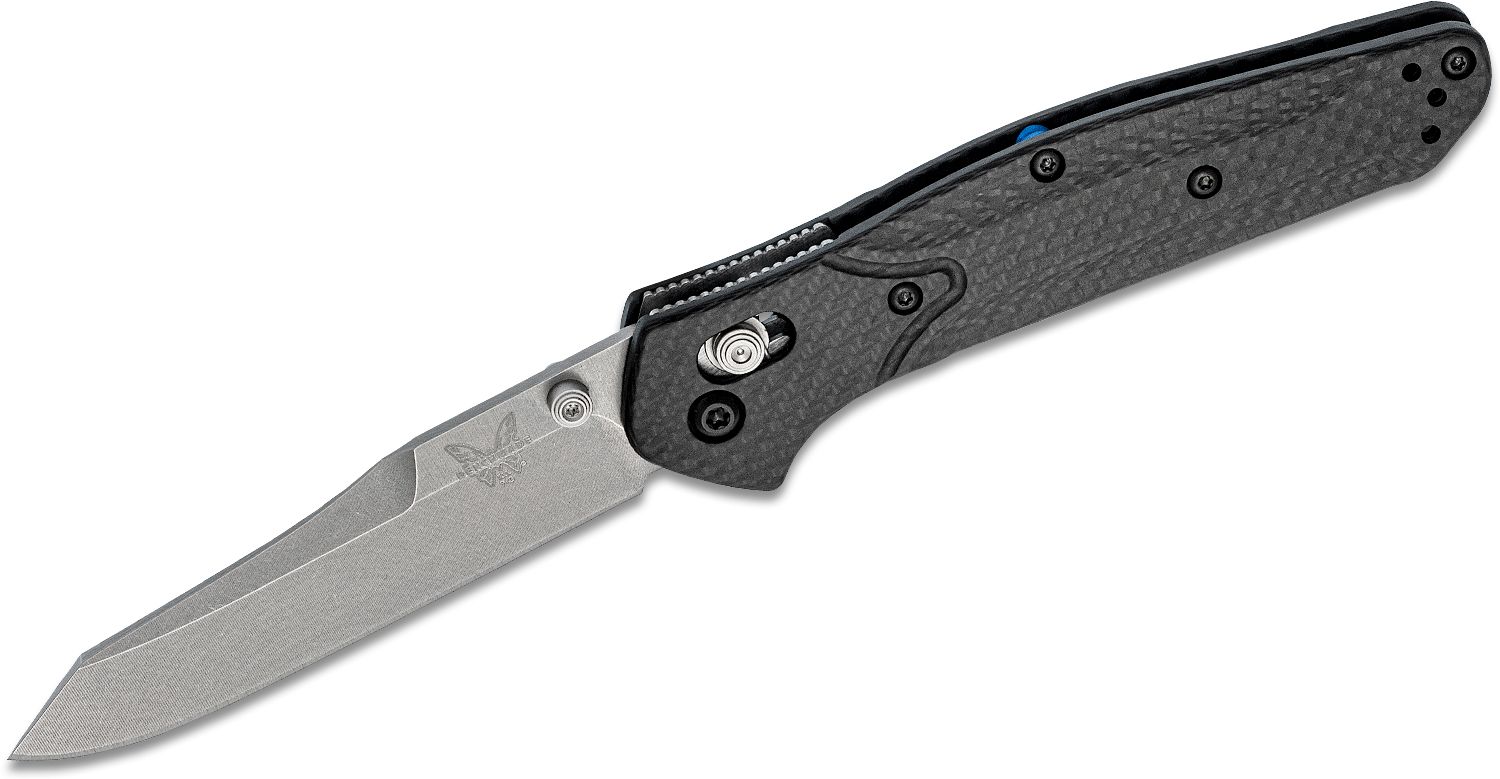
The 940-1 is a premium version with carbon fiber handles and an S90V blade. It’s lighter than the aluminum versions and has an open-back construction for easy cleaning. The S90V steel offers greatly improved edge retention.
9400 Auto
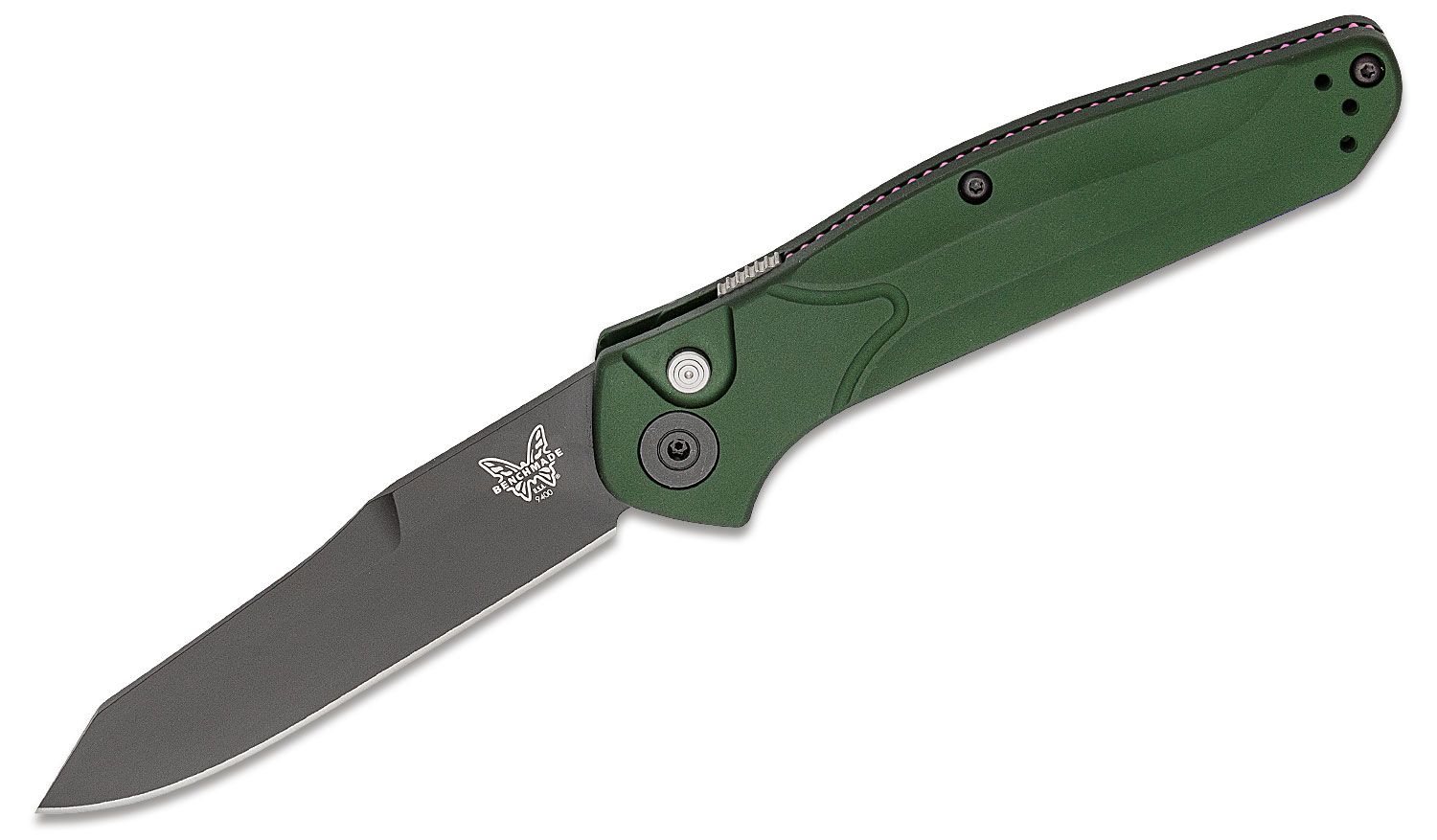
The 9400 Auto is an automatic version of the 940. It’s available in the classic green aluminum with purple titanium construction, and a “burnt copper” aluminum version with an upgraded MagnaCut steel blade. It has a push-button automatic mechanism and a spine safety. It also gets an upgrade to the split arrow pocket clip.
945 Mini Osborne
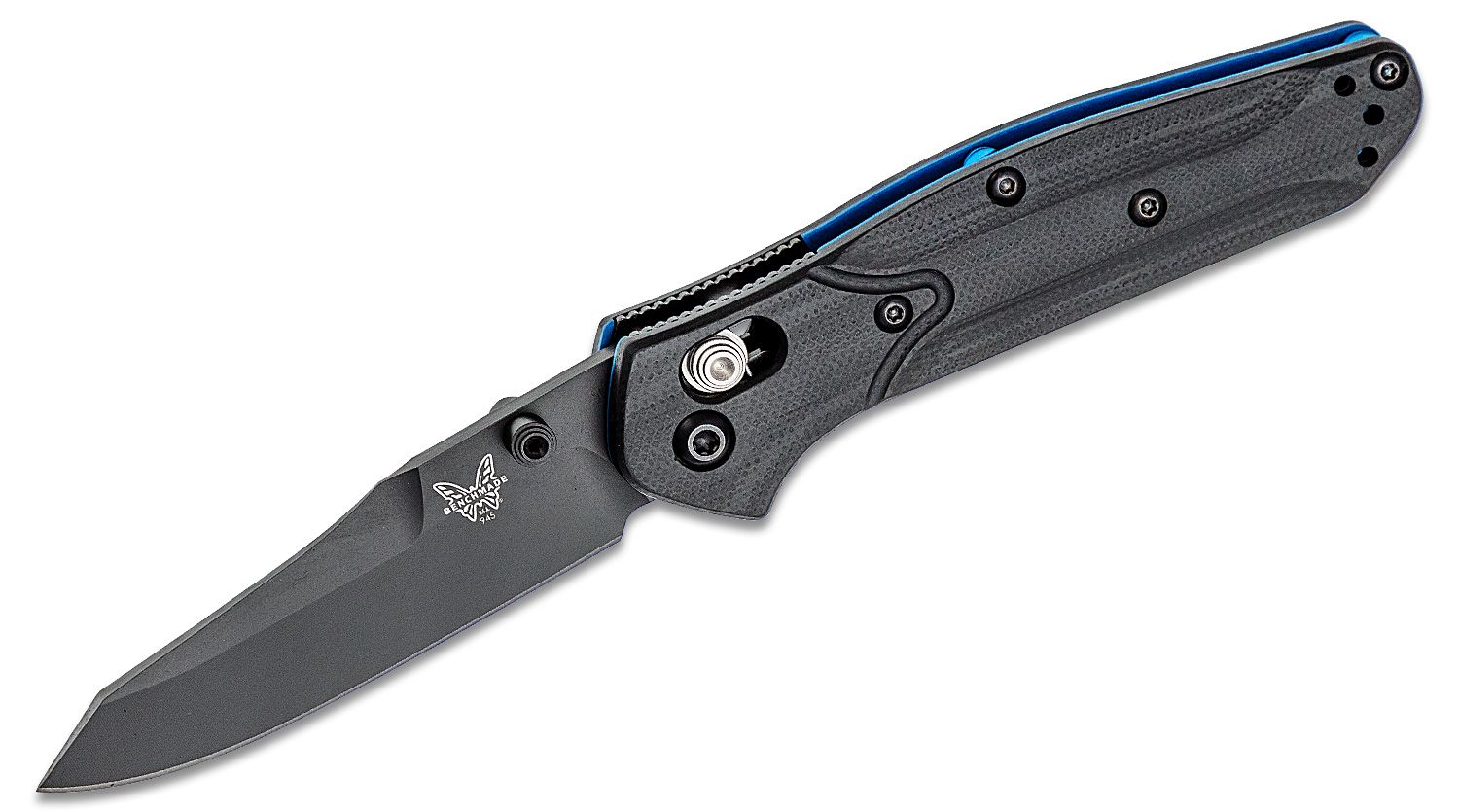
The 945 Mini Osborne is a smaller version of the 940. There are several versions available, including the classic green and purple colorway or with G10 handles and blue accents (pictured above). This “city-friendly” size is great for those who prefer a smaller blade. Pricing is comparable to the full size versions, however, so if you can carry a bigger knife, there is definitely more value in the larger versions.
Aftermarket and Custom Options
One of the best things abot the 940 series is the extensive aftermarket support. You can find mods, scales, and other parts to customize your knife from the likes of MetonBoss and Flytanium. Benchmade also offers fancier versions, like the limited-edition Gold Class Mini Osborne that features premium materials and a unique twist on the design.
The Competition: Knives That Challenge the 940
Many knives try to capture the magic of the 940. These are some that come close.
CRKT Facet
/images/CRK253TM390_CRK254TM390_LSR41.jpg)
Available in both affordable and premium configurations, the Ken Onion-designed CRKT Facet both competes directly with the Benchmade 940 and significantly undercuts it. Let’s start with the budget version: it has a D2 blade for good edge retention at this price point, stainless steel handles with a sturdy frame lock, and assisted flipper deployment for reliable operation.
The limited edition, Italian-made versions of the Facet are a step up. They cost around $275 and deliver an elevated package all around, with 3.5-inches of blade made from M390 steel and a selection of engraved titanium handles. These versions have ball bearings and no assist for smooth manual flipper deployment.
Overall, the distinctive blade shape and slim silhouette offer a real alternative to the 940, no matter if you pick the budget option or spring for one of the premium Italian-made selections.
Gerber Savvy
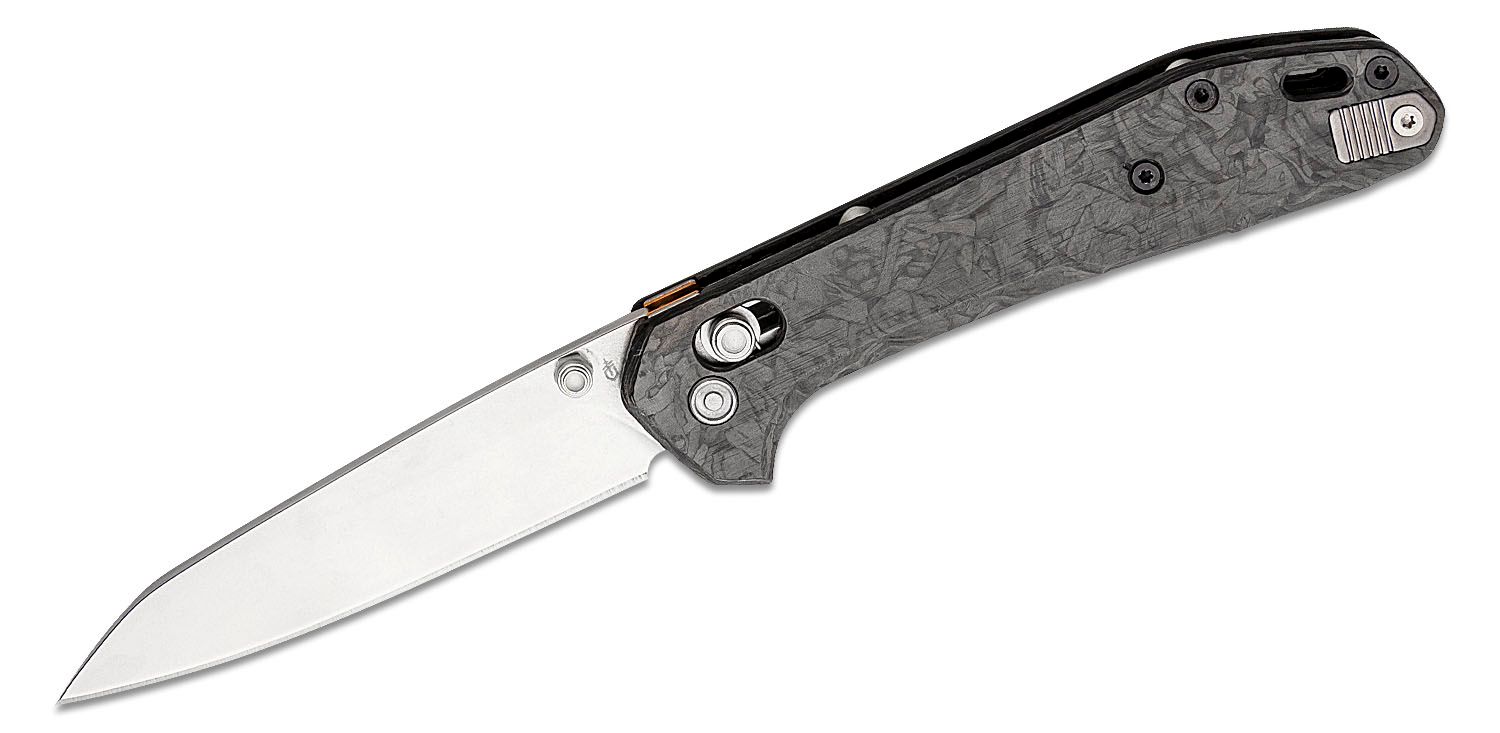
The Gerber Savvy is a US-made knife from their “reserve” program. It costs around $200 for the aluminum version and $250 for the carbon fiber version. Both versions use 20CV steel for premium blade performance. The aluminum or marbled carbon fiber handles add refinement, while the strong crossbar lock and oversized washers add hard-use characteristics. Like the 940, it offers a blend of work knife and dress knife characteristics that make it a great alternative.
Pro-Tech Malibu
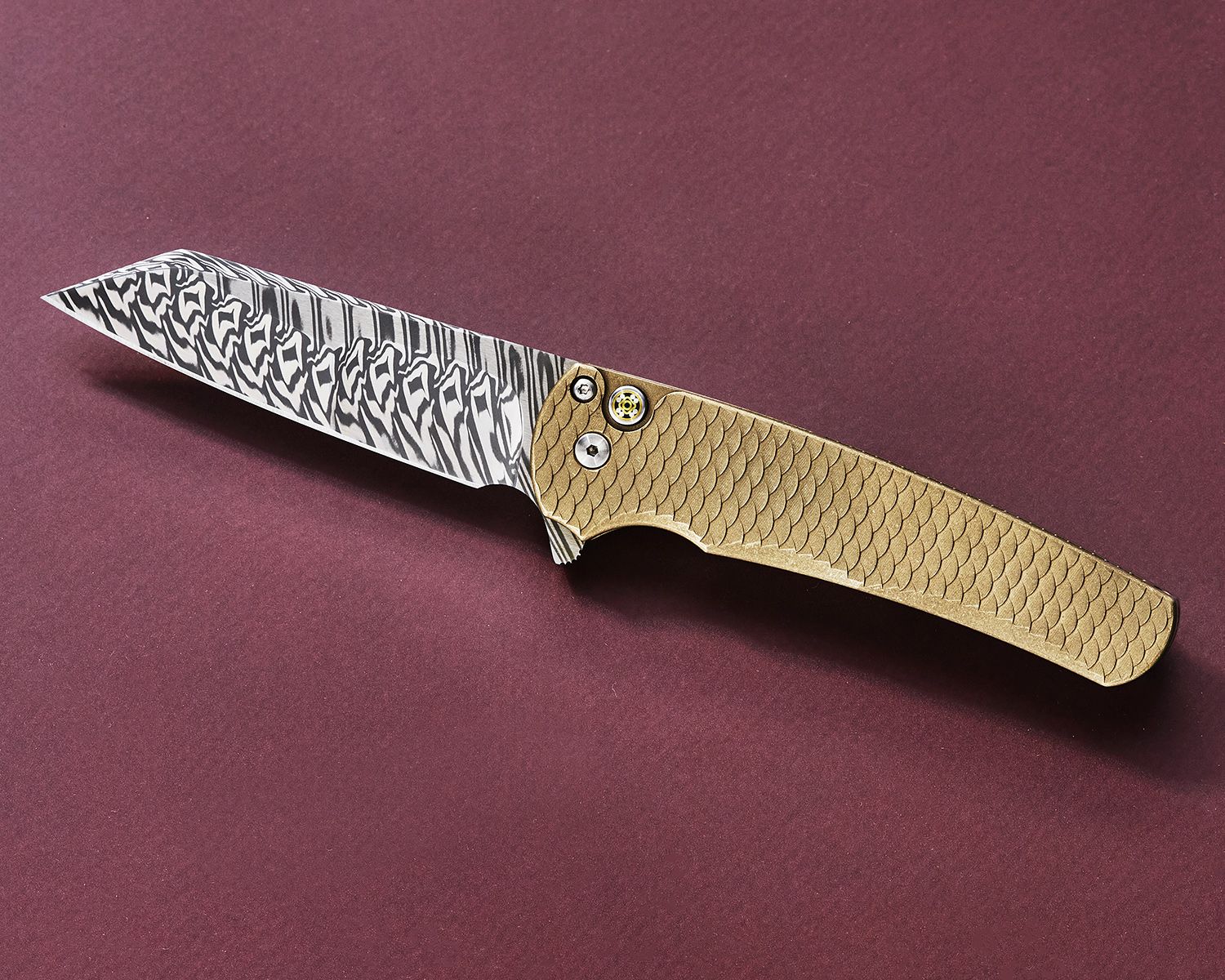
The Pro-Tech Malibu is another strong competitor. Although prices starts at just over $200, Pro-Tech sometimes offers the Malibu with exotic materials and handworked finishes that significantly increase the price. Generally, though, it can be found with aluminum handles and a Wharncliffe or reverse tanto blade shape. The button lock mechanism is finger-safe and extremely satisfying to use—this is THE knife that kicked off the resurgence of manual button lock folders we’ve seen in the last few years. Pro-Tech manufactures the Malibu (and all their knives) in the USA.
Rockstead RYO
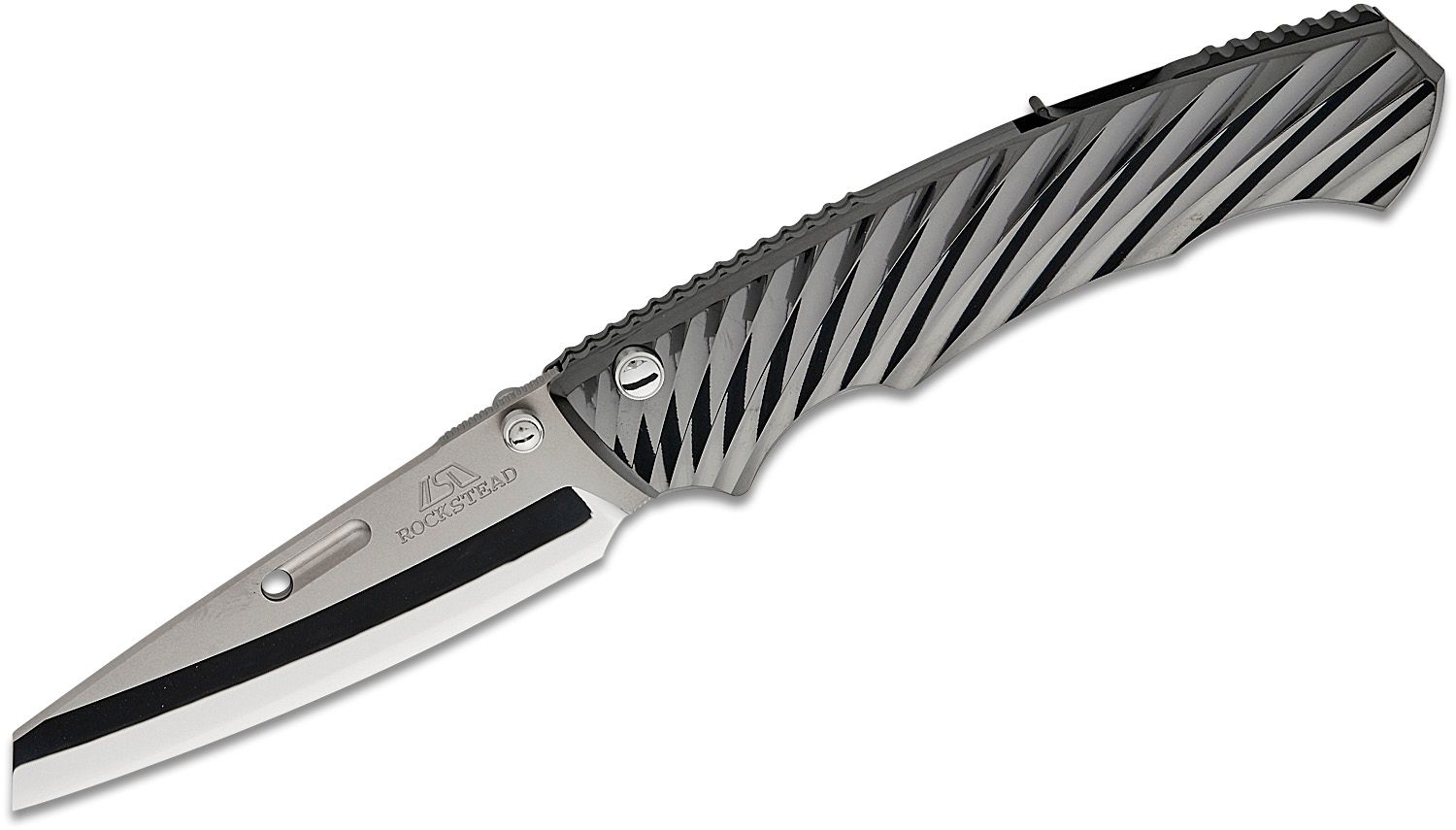
The Rockstead RYO is not for the faint of heart. With its extraordinarily hard ZDP-189 blade steel, mirror-polished convex grind, disappearing pocket clip mechanism, and labor-intensive Japanese manufacturing, the RYO starts at $1,900. As a high-end alternative to the Benchmade 940, though, it’s certainly an incredible choice!
WE Knife Vision R
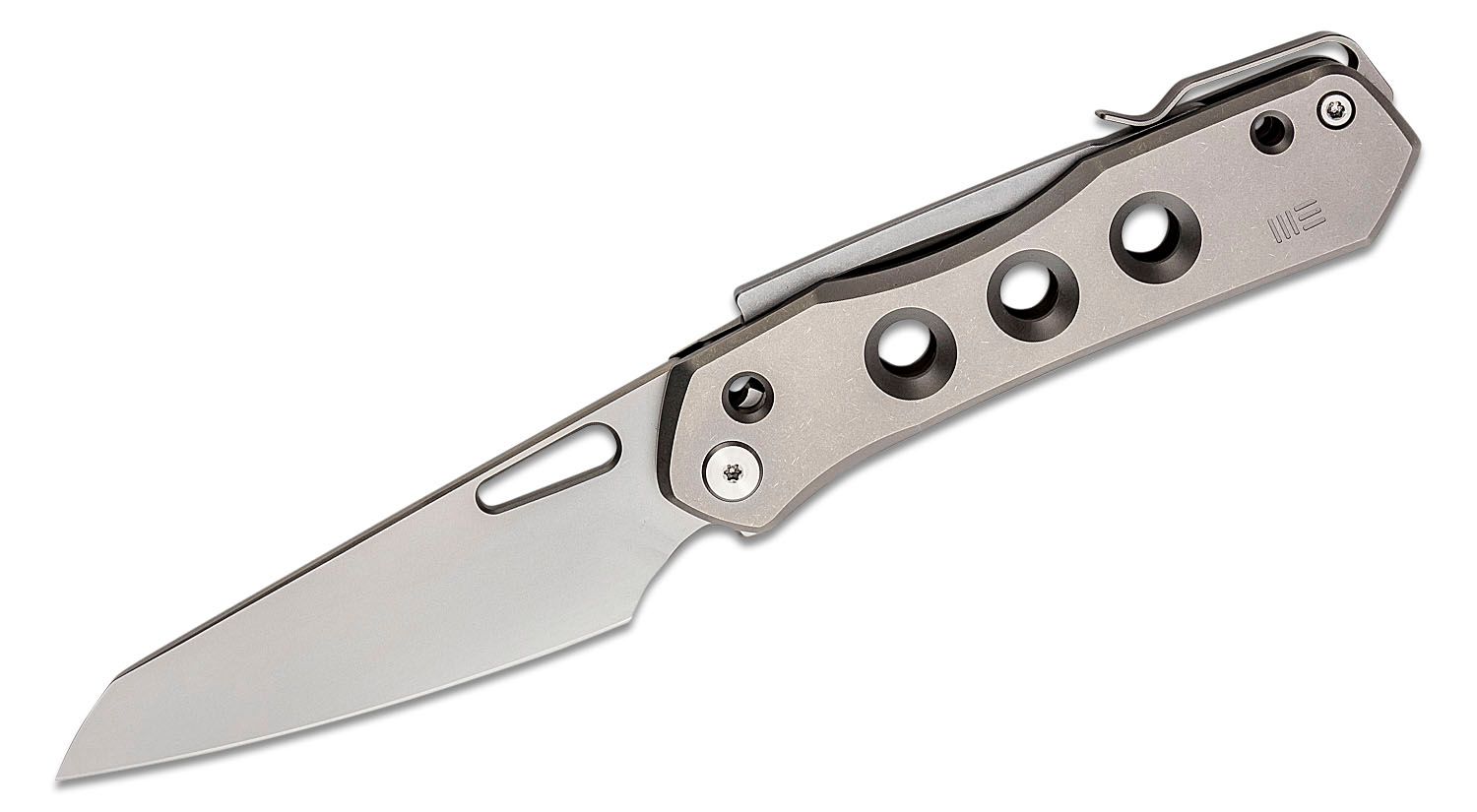
The WE Knife Vision R might be the most polarizing knife in WE Knife Company‘s entire catalog, with a big personality that will appeal to as many people as it repels. If its unique looks and outside-the-box functionality appeal to you, however, the design delivers an exceptionally useful folding knife. Its unique Superlock mechanism is spine-mounted and finger safe, and the premium 20CV steel blade allows for full contact with a cutting board to assist with food prep when called for. And, if the price (or that funky spine-mounted pocket clip) isn’t for you, it’s also available as a more affordable (and more broadly appealing) CIVIVI Vision FG.
Kizer Cormorant
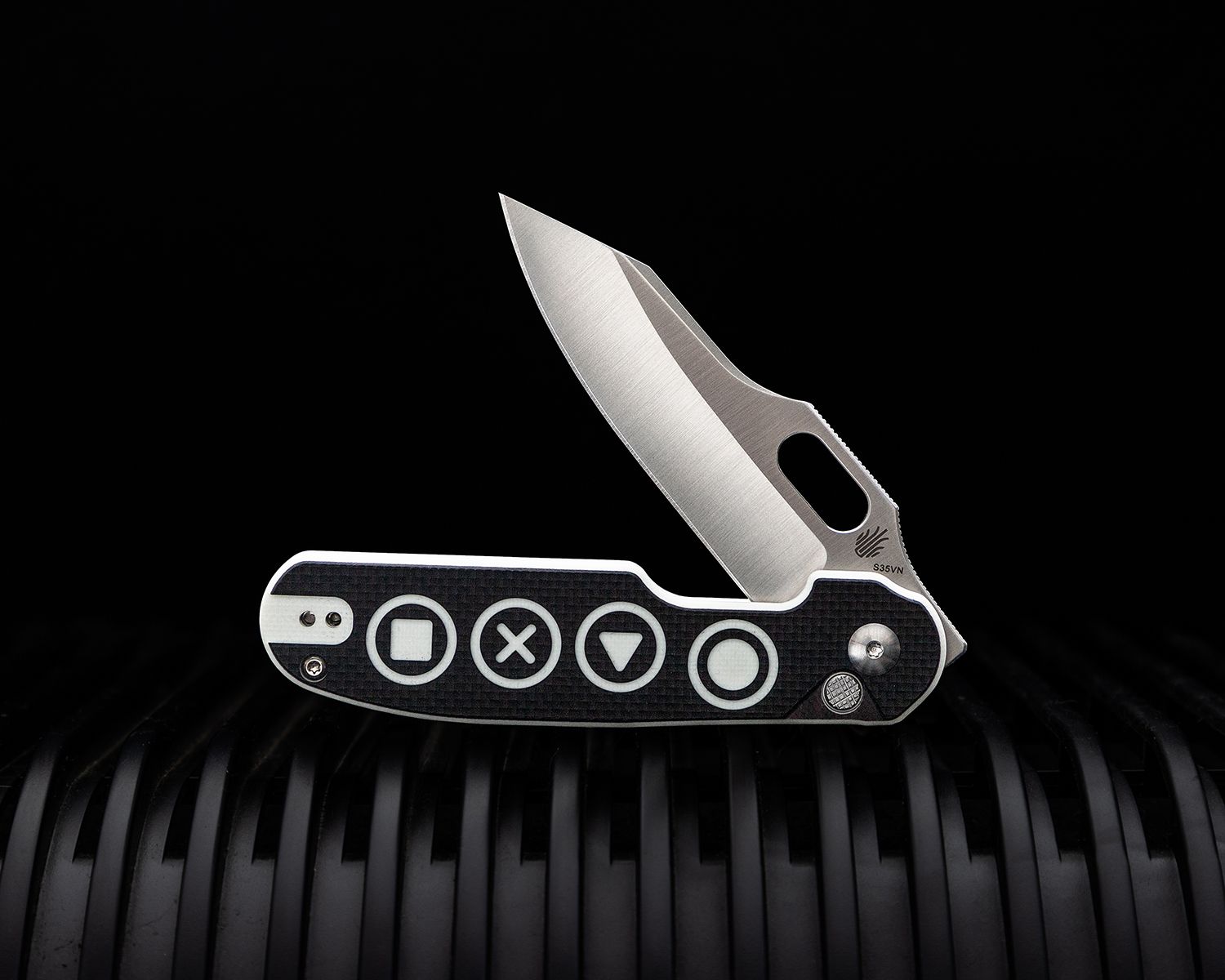
The Kizer Cormorant costs around $169 for the titanium version with 20CV steel, but it can be found for under $100 if you opt out of premium materials. Like the Benchmade 940, its distinctive reverse tanto blade is tough enough for harder work. It stands apart from the 940, however, in terms of sheer fidget-factor. Its carefully engineered button lock system and multiple deployment methods mean you can flip, flick, roll, an swing that blade open and closed to your heart’s content.
Spyderco Smock
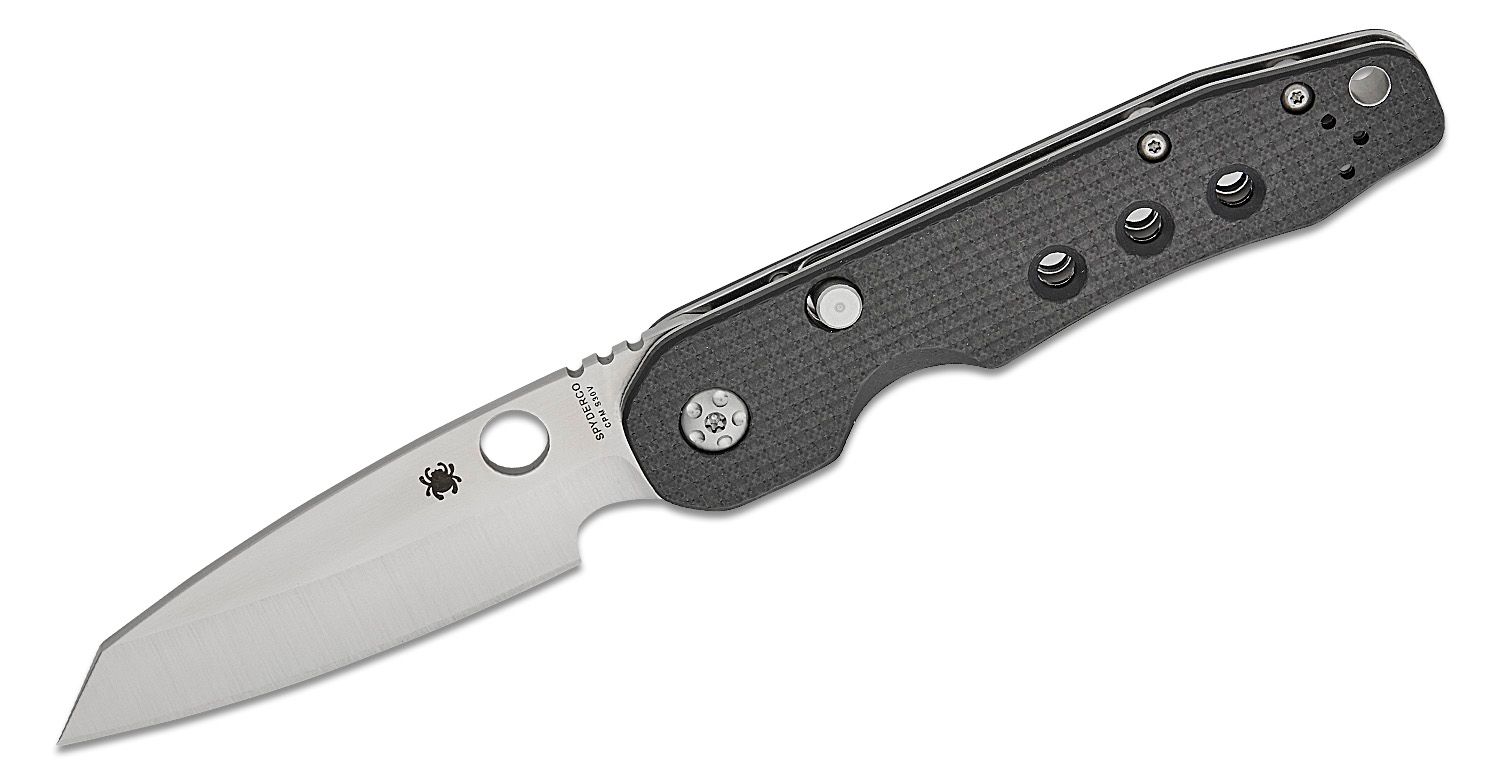
The Spyderco Smock features a reverse tanto blade made from S30V steel. Its button-release Compression lock system delivers a crisp, satisfying detent like a liner or frame lock, an easy-to-use interface like a traditional button lock, and the exceptional strength of a Compression lock. The knife has a flipper tab that tucks away into the handle when open.
Spyderco Kapara
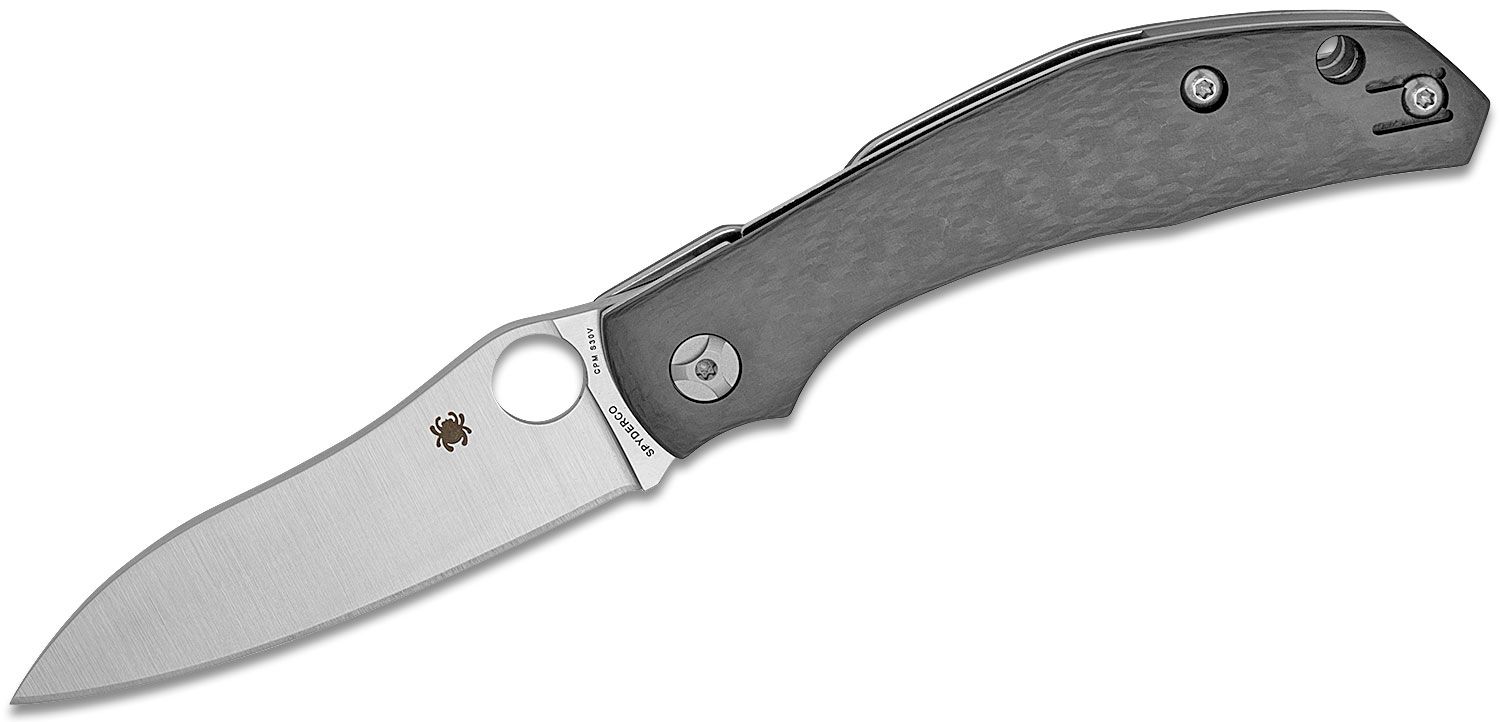
Although the Spyderco Kapara does not have a reverse tanto blade profile, we still think it makes an excellent alternative to the Benchmade 940 because it mixes dress knife characteristics with work knife features in a similar way. The beautifully contoured carbon fiber scales are a pleasure to hold, and the full flat ground S30V blade slices with efficiency. It has carbon fiber handles and a full flat grind. The knife uses a compression lock that is right-hand biased, although the clip is reversible for left- or right-hand carry.
Artisan Cutlery Andromeda

The Artisan Cutlery Andromeda is available in two tiers: you can go premium with S35VN blade steel and a sleek milled titanium pocket clip, or save your money with a more pedestrian version made with RPM9 steel and a conventional deep-carry clip. This Ray Laconico design is sleek and capable, exactly what you want in a Benchmade 940 alternative.
SOG One-Zero XR
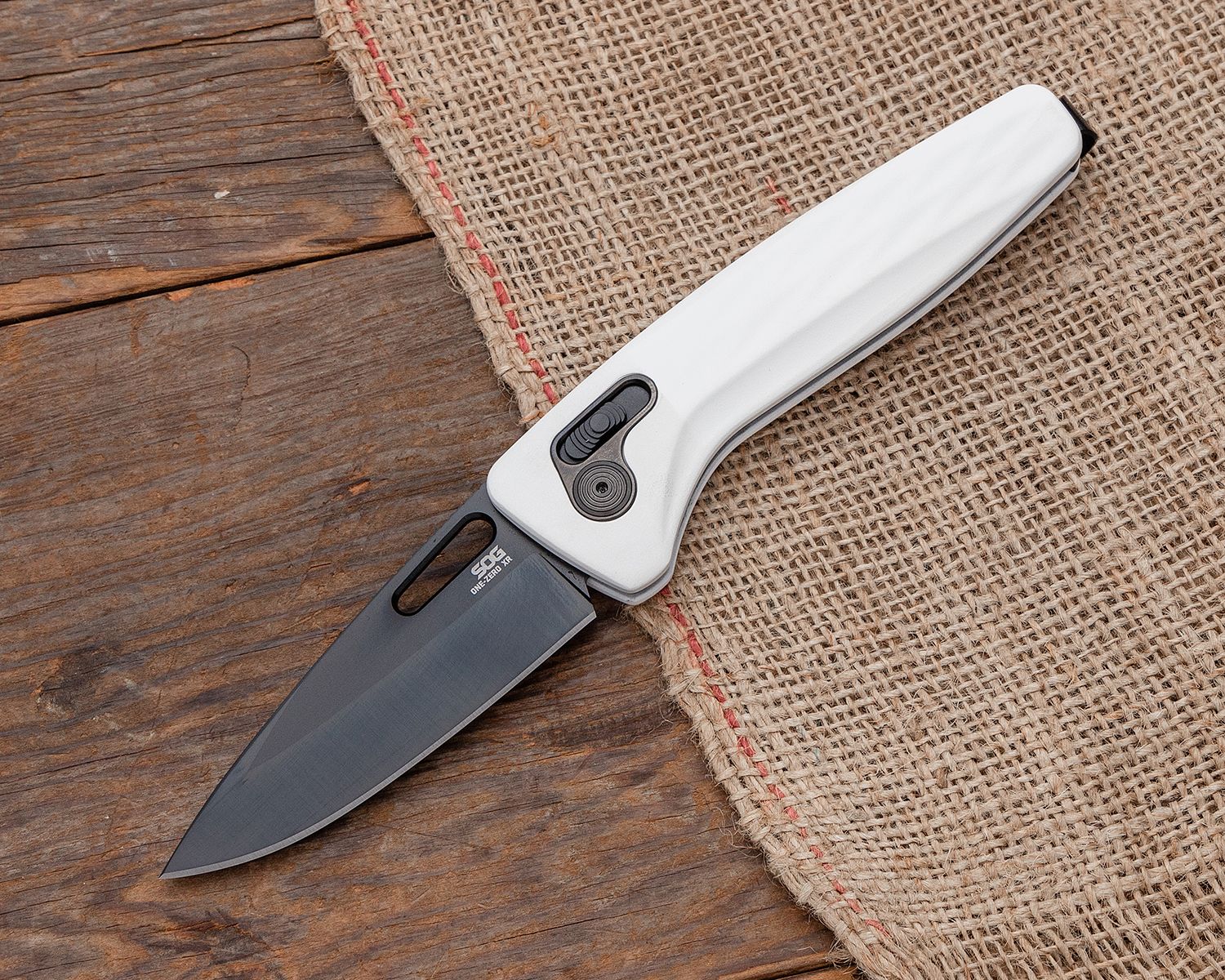
The SOG One-Zero XR is made with S35VN steel. It has aluminum handles and starts around $270 as of publishing. SOG’s excellent XR Lock mechanism helps to open the knife without an assist, by “kicking” the blade open slightly when you pull back on the crossbar. It also helps “catch” the blade when you swing it closed, which makes for a very satisfying kinetic experience during operation.
The Verdict
Can any of these knives truly beat the Benchmade 940? That’s a tough question. The 940 has something special. An intangible quality. But it’s always great to have so many amazing options to choose from.
What do you think of these comparisons? Do any of these knives hold a candle to the Benchmade 940?